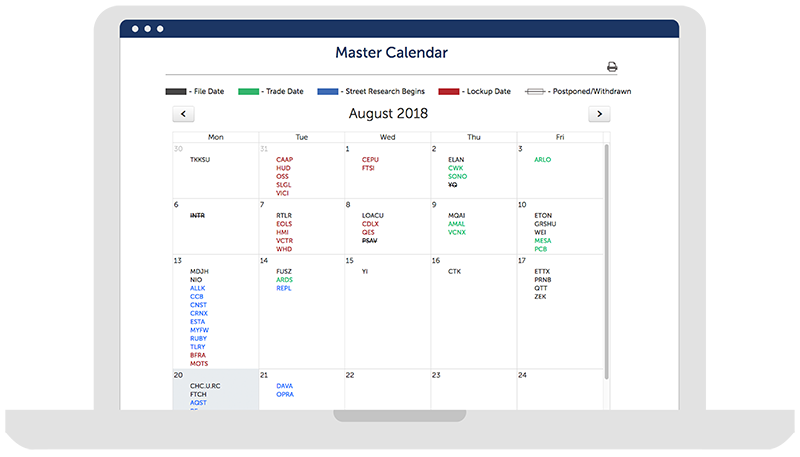The ALS Association issued a press release Tuesday stating that donations in the past month have reached $89 million, including $66 million in the past seven days. During the same time last year, it raised just $2 million, demonstrating the power of social media as the "ice bucket challenge" goes viral on Youtube, Facebook (NASDAQ: FB; up 97% since May 2012 IPO) and Twitter (NYSE: TWTR; up 77% since November 2013 IPO).
With 51 biotech initial public offerings this year, companies in pre-revenue drug development represent the single largest segment of the IPO market in 2014 (outnumbering the combined number biotech IPOs in 2012 and 2013). Biotechs are also the largest component of upcoming IPOs in the pipeline.
Amyotrophic lateral sclerosis (ALS, or Lou Gehrig's Disease) is a fatal neurodegenerative disease that affects about 30,000 people in the US. Active trials to treat ALS are ongoing, and it remains one of several central nervous system (CNS) diseases targeted by companies that have either filed to go public or completed an IPO this year.
Filed
Q Therapeutics, which originally filed to raise $5 million in June 2013, recently announced plans to list on the NASDAQ instead of the OTC Bulletin Board. A very early-stage company, it expects to launch its first clinical program studying the use of stem cells to treat ALS in early 2015. Because of its size, Q Therapeutics will not be included in Renaissance Capital's IPO stats.
Forward Pharma (FWP) could be the year's largest biotech IPO, with a proposed deal size of $200 million. Forward Pharma filed with the SEC two weeks ago, meaning an IPO could come as early as mid-September. The Danish company is in late-stage clinical trials for a slow-release oral treatment of multiple sclerosis (MS), a CNS disease that affects an estimated 400,000 people in the US.
Vitae Pharmaceuticals (VTAE) is a recent biotech IPO filer notable for its technological approach to developing a treatment for CNS diseases including Alzheimer's and MS. The early-stage company filed to raise $55 million on August 12, and claims that its software uses artificial intelligence and sophisticated algorithms to model drug structures with multi-billion dollar markets.
Priced
Auspex Pharmaceuticals (ASPX) is the 5th-best performing biotech IPO of 2014, and now trades 75% above its IPO price. The late-stage biotech targets chorea (associated with Huntington's disease) and other involuntary movement disorders, including tardive dyskinesia and tics associated with Tourette syndrome.
Minerva Neurosciences (NERV) raised $33 million in early July, and has traded up 13% after slashing its valuation by nearly half. The early-stage company focuses on symptoms of schizophrenia and depression, and also has drug candidates for insomnia and Parkinson's.
Adamas Pharmaceuticals (ADMS) now trades 11% above its IPO price after dropping 12% on the first day (the 4th-worst first-day performance for a biotech in 2014). The company raised $48 million to fund late-stage trials for generic versions of drugs that target two common CNS disorders - Parkinson's and Alzheimer's.
Of note, ReWalk Robotics (RWLK) set terms today for an IPO that could raise $50 million in two weeks. The Israeli company recently received FDA approval to market robotic exoskeletons that enable paraplegics (and, potentially, MS patients) to walk again.
The biotech window appears to remain open as we approach Labor Day weekend, as the Renaissance Capital IPO ETF (symbol: IPO) trades up 6.4% year-to-date and 3.8% in the past 30 days. Renaissance issues pre-IPO research for institutional investors before each IPO, and provides periodic IPO updates for investors interested in the IPO market.


